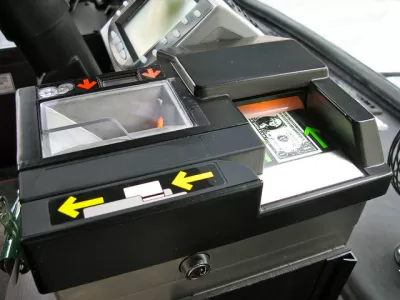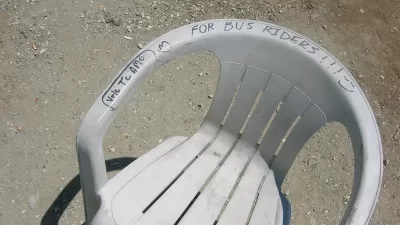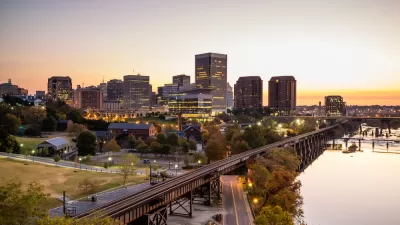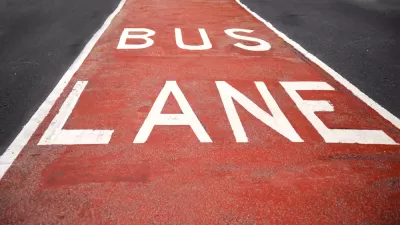Washington, D.C.'s Metro is trying a cashless bus pilot that will last until December.

"Metro is set to ban cash payments on the 79 limited-stop route along Georgia Avenue, between the Silver Spring Transit Center and Archives-Navy Memorial, starting June 24. It’s part of a pilot program meant to speed up bus trips that is drawing some concerns from riders," Max Smith reports for WTOP. This pilot program will last until December and could spread to other bus lines if the agency decides the pilot is a success. By eliminating cash, Metro is hoping to shrink "dwell times," or the amount of time the bus stands stationary at stops while riders board and pay fares.
The new policy will not effect most riders. "About 3 percent of riders — 200 people each day — use cash just on Route 79, Metro said, while another 6 percent of riders add value to their SmarTrip cards," Max reports. But a lack of access to credit may be why those who do not pay with a credit or debit card use cash. This would make it difficult for them to make the switch. While some grocery stores and pharmacies will be able to accept cash payments for transit fares, stops and buses would not be able to take cash payments.
FULL STORY: Metro’s cash-free bus pilot aims to speed up trips, but some riders worried

Alabama: Trump Terminates Settlements for Black Communities Harmed By Raw Sewage
Trump deemed the landmark civil rights agreement “illegal DEI and environmental justice policy.”

Study: Maui’s Plan to Convert Vacation Rentals to Long-Term Housing Could Cause Nearly $1 Billion Economic Loss
The plan would reduce visitor accommodation by 25% resulting in 1,900 jobs lost.

Why Should We Subsidize Public Transportation?
Many public transit agencies face financial stress due to rising costs, declining fare revenue, and declining subsidies. Transit advocates must provide a strong business case for increasing public transit funding.

Paris Bike Boom Leads to Steep Drop in Air Pollution
The French city’s air quality has improved dramatically in the past 20 years, coinciding with a growth in cycling.

Why Housing Costs More to Build in California Than in Texas
Hard costs like labor and materials combined with ‘soft’ costs such as permitting make building in the San Francisco Bay Area almost three times as costly as in Texas cities.

San Diego County Sees a Rise in Urban Coyotes
San Diego County experiences a rise in urban coyotes, as sightings become prevalent throughout its urban neighbourhoods and surrounding areas.
Urban Design for Planners 1: Software Tools
This six-course series explores essential urban design concepts using open source software and equips planners with the tools they need to participate fully in the urban design process.
Planning for Universal Design
Learn the tools for implementing Universal Design in planning regulations.
Smith Gee Studio
Alamo Area Metropolitan Planning Organization
City of Santa Clarita
Institute for Housing and Urban Development Studies (IHS)
City of Grandview
Harvard GSD Executive Education
Toledo-Lucas County Plan Commissions
Salt Lake City
NYU Wagner Graduate School of Public Service





























